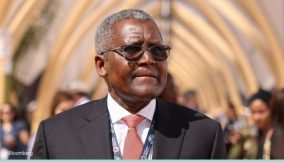Human rights activists on the platform of Amnesty International have decried Nigeria’s shrinking civic space and its implications for human rights advocacy.
This was the center of discussions at the Amnesty International, Human Rights Fiesta held in Abuja on Thursday, with the theme, ‘Shrinking Civic Space: Implications for Human Rights Advocacy in Nigeria ‘ as part of activities to mark the International Human Rights Day celebrated December 10th annually.
In her keynote address, entitled, ‘Voices Unchained, Bodies Unburied,’ Bukky Shonibare, executive director, Invictus Africa, defined civic space as the environment that allows individuals and groups to organise, participate, and communicate freely—without fear of reprisal
“Every time a protest is crushed, or an activist is silenced, it diminishes not only Nigeria’s civic space but our collective humanity, yet, with every suppression, countless voices unchain themselves, determined to continue the fight,” she said.
Shonibare stressed that “these voices cannot—and will not—be buried, no matter how hard the forces of oppression try to silence them. It is up to us to stand in solidarity with these voices and ensure that civic space remains open, not just for Nigerians, but for all people around the world.
“In Nigeria, these freedoms are enshrined in our Constitution. Section 39 which guarantees the right to freedom of expression, affirming that every person has the right to hold opinions and to receive and impart ideas without interference. Similarly, Section 40 protects the right to peaceful assembly and association, enabling Nigerians to organizlse, protest, and mobilise around shared causes.”
These constitutional rights are further reinforced by international obligations. The African Charter on Human and Peoples’ Rights echoes these protections, emphasising their importance in safeguarding human dignity and democratic governance
Shonibare noted that _Nigeria_ has witnessed an alarming erosion of civic freedoms.
“Legislative restrictions, digital surveillance, and brutal crackdowns have combined to shrink the space for dissent and advocacy. Restrictive laws have been introduced and weaponised to stifle dissent.”
“The NGO Regulation Bill, for instance, sought to place civil society organisations under stringent government control, effectively curtailing their independence. Similarly, the Cybercrimes (Prohibition, Prevention, etc.) Act has been used to target critics, with provisions on ‘cyberstalking’ and ‘defamation’ invoked to harass journalists, activists, and social media users,” she added
“The violent suppression of protests is perhaps the clearest manifestation of Nigeria’s shrinking civic space,” she noted.
“Take for example, the #EndSARS movement, where the state responded to peaceful
demonstrations with arrests, intimidation, and violence, culminating in the tragic Lekki Toll Gate massacre.
“These incidents reflect a pattern of state overreach that undermines the fundamental right
to protest. In 2012, Nigerians mobilized en masse against the removal of fuel subsidies. The protests were a watershed moment in Nigerian activism, forcing the government to reverse its decision and highlighting the power of unified dissent.
“The right to protest and freedom of expression are foundational to any democracy, serving as essential tools for societal change, justice, and accountability,” she noted.
In her recommendations for advancing human rights advocacy she listed, among others, strengthening of the legal
protections for civic freedoms, focusing on repealing or amending repressive laws that have been used to curtail dissent, such as the Cybercrimes (Prohibition, Prevention, etc.) Act and fostering of collaboration among activists, NGOs, media organisations and international partners to amplify the impact of advocacy efforts.
“Additionally, supporting judicial independence, promoting digital resilience, decentralised platforms, such as peer-to-peer networks and
blockchain-based communication tools, marginalization of state-controlled companies,” she said
In her remarks, Barbara Magaji, programme manager, Amnesty International, said Amnesty International is an organisation of “human rights made up of over 10 million people globally and located in over 135 countries, including Nigeria.
“And our work is, and our dream is to see a day where everyone enjoys human rights. As we are today as a nation, it’s still a far cry.”
Join BusinessDay whatsapp Channel, to stay up to date
Open In Whatsapp





